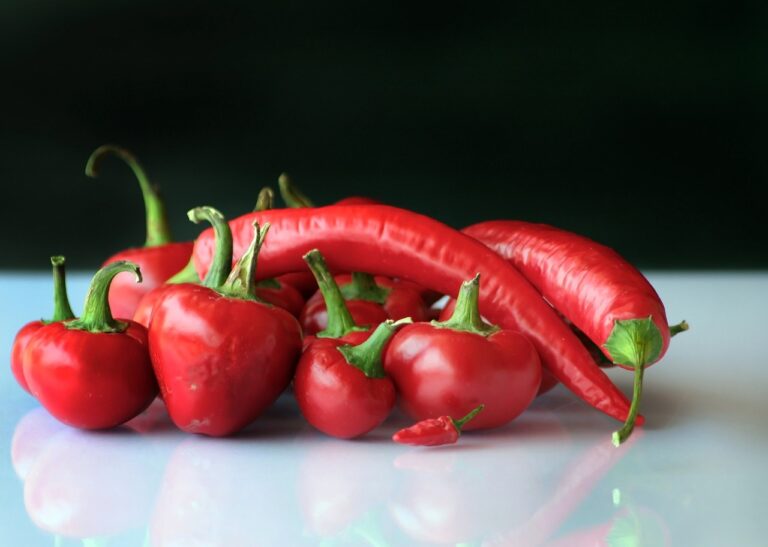Rheumatology and Ayurveda: Traditional Healing Practices: World 7 login, Mahadev book id login, Silver777 login
world 7 login, mahadev book id login, silver777 login: Rheumatology and Ayurveda: Traditional Healing Practices
Living with rheumatoid arthritis can be challenging, with symptoms like joint pain, inflammation, and stiffness impacting daily life. While conventional treatments like medications and physical therapy can help manage the condition, many individuals are also turning to alternative healing practices, such as Ayurveda, to find relief.
Ayurveda, an ancient healing system from India, focuses on holistic well-being and believes that the body, mind, and spirit are interconnected. In Ayurveda, rheumatoid arthritis is seen as an imbalance of the vata dosha, one of the three energies that govern the body. By rebalancing these energies through diet, lifestyle changes, and natural remedies, Ayurveda aims to alleviate symptoms and improve overall health.
Here, we explore the intersection of rheumatology and Ayurveda, shedding light on how traditional healing practices can complement modern treatments for rheumatoid arthritis.
Understanding Rheumatoid Arthritis
Rheumatoid arthritis is an autoimmune disorder where the immune system mistakenly attacks the body’s joints, causing inflammation, pain, and stiffness. Over time, this can lead to joint damage and disability. While conventional treatments like nonsteroidal anti-inflammatory drugs (NSAIDs) and disease-modifying antirheumatic drugs (DMARDs) can help manage symptoms and slow down the progression of the disease, they may come with side effects and limitations.
Ayurveda and Rheumatoid Arthritis
Ayurveda offers a natural approach to managing rheumatoid arthritis by addressing the root cause of the condition rather than just treating the symptoms. According to Ayurvedic principles, an imbalance of the vata dosha, characterized by dryness, coldness, and instability, contributes to joint inflammation and pain in rheumatoid arthritis. By rebalancing the vata dosha through diet, lifestyle modifications, and herbal remedies, Ayurveda aims to reduce inflammation, improve joint function, and enhance overall well-being.
Ayurvedic Treatments for Rheumatoid Arthritis
Ayurvedic treatments for rheumatoid arthritis focus on reducing inflammation, improving digestion, strengthening the immune system, and detoxifying the body. Some common Ayurvedic remedies and practices for managing rheumatoid arthritis include:
1. Panchakarma therapy: A detoxification treatment that helps remove toxins from the body and restore balance to the doshas.
2. Herbal remedies: Ayurvedic herbs like turmeric, ashwagandha, and guggul are known for their anti-inflammatory and pain-relieving properties.
3. Diet: Following an Ayurvedic diet that includes warm, cooked foods, spices like ginger and turmeric, and avoiding processed foods and dairy products.
4. Lifestyle changes: Practicing yoga, meditation, and pranayama (breathing exercises) to reduce stress, improve flexibility, and promote overall well-being.
5. Oil massage: Regularly applying warm Ayurvedic oils like sesame or mustard oil to the affected joints to reduce pain and inflammation.
6. Mind-body practices: Ayurveda emphasizes the connection between the mind and body, encouraging practices like mindfulness and positive thinking to support healing.
FAQs About Ayurveda and Rheumatoid Arthritis
Q: Is Ayurveda safe for managing rheumatoid arthritis?
A: Ayurveda is generally safe when practiced under the guidance of a qualified Ayurvedic practitioner. It is essential to consult with your healthcare provider before making any changes to your treatment plan.
Q: Can Ayurveda cure rheumatoid arthritis?
A: While Ayurveda cannot cure rheumatoid arthritis, it can help manage symptoms, improve joint function, and enhance overall well-being. It is best used as a complementary therapy alongside conventional treatments.
Q: How long does it take to see results with Ayurvedic treatment?
A: The timeline for seeing results with Ayurvedic treatment can vary from person to person. Some individuals may experience relief from symptoms within a few weeks, while others may take longer to notice improvements.
Q: Are there any side effects of Ayurvedic treatments?
A: Ayurvedic treatments are generally safe when practiced correctly. However, some individuals may experience side effects like digestive issues or allergic reactions to certain herbs. It is essential to discuss any concerns with your Ayurvedic practitioner.
In Conclusion
Ayurveda offers a holistic approach to managing rheumatoid arthritis, focusing on balancing the body’s energies and promoting overall well-being. While Ayurvedic treatments may not cure the condition, they can help alleviate symptoms, improve joint function, and enhance quality of life. By integrating traditional healing practices like Ayurveda with modern rheumatology treatments, individuals with rheumatoid arthritis can take a comprehensive approach to managing their condition and achieving optimal health.







